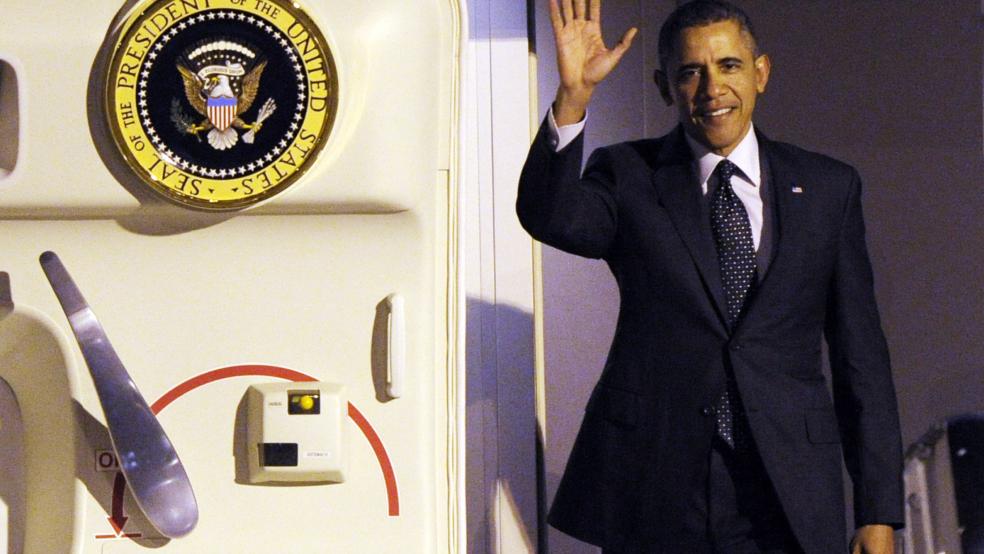Critics of President Obama’s response to events in Ukraine say he is both weak and indecisive in his dealings with Russia.
Republican lawmakers say the White House needs to punish Russia and curb President Vladimir Putin’s territorial aspirations. So what is Congress doing to make sure that happens?
“Members of Congress have seemed to assume it’s up to Obama to act,” said Chris Edelson, an assistant professor of government at American University. “They are giving away power when they do that. They should require the president to consult with them. The Constitution really creates a shared framework for both Congress and the president to make these decisions.”
Related: How Putin Awoke NATO’s Sleeping Giant
So far, there has been little collaboration between the two branches of government. Obama imposed sanctions on 20 Russians and a bank, while Congress has yet to pass legislation that would provide economic or military assistance to Ukraine.
A bill aimed at doing so met Republican resistance in the House after Senate Democrats included a provision that would make changes to the International Monetary Fund. That language has since been stripped from the bill in hopes of getting the measure to Obama’s desk within the week.
“We need to be a little bit tougher with Putin or he is going to continue to take territory to fulfill what he believes is rightfully Russia,” Mike Rogers, a Michigan Republican and chairman of the House Intelligence Committee, said this week on NBC’s “Meet the Press.” When asked if there’s a red line for Congress, he said that if Putin “crosses into the Baltics with military units--that is more than troubling.”
Related: The US-Russia Military Supply Chain Could Snap
The responsibility for preventing that from happening lies squarely with the White House, according to Tripp Baird, a senior legislative strategist at Heritage Action for America, the political arm of the Washington-based Heritage Foundation.
“At the end of the day, the president conducts and carries out foreign policy,” he said. “The military can move around military assets without Congress’ approval. If they want to park an aircraft carrier in the Black Sea, they can do that.”
Obama has given no indication he’ll take those kinds of steps.
“There are going to be moments where military action is appropriate,” Obama said yesterday at the conclusion of a nuclear security summit at The Hague, Netherlands. “There are going to be some times where that's not in the national security interests of the United States or some of our partners, but that doesn't mean that we're not going to continue to make the effort, or speak clearly about what we think is right and wrong. And that's what we've done.”
Related: How Vladimir Putin is Remaking a New World Order
Russia’s invasion and annexation of Crimea presents Obama with his biggest diplomatic challenge since the use of chemical weapons in Syria’s civil war. In that instance, Obama initially signaled that military force would be used without authorization from Congress. He then sought approval from lawmakers.
“Obama again has acted unilaterally in a sense,” Edelson said, noting that the president stated he won’t use military force to expel Russian troops from Crimea. He said lawmakers shouldn’t be so quick to allow the executive branch to make those kinds of decisions, even if they agree with the outcome.
“If the president thinks he can effectively declare peace, I’d say, ‘Wait a minute,’” Edelson said, adding that Congress made the right move with Syria by debating whether to authorize military action. “I’m concerned that they’re giving that back by disclaiming responsibility by saying, ‘You sort this out.’”
Top Reads from The Fiscal Times:





